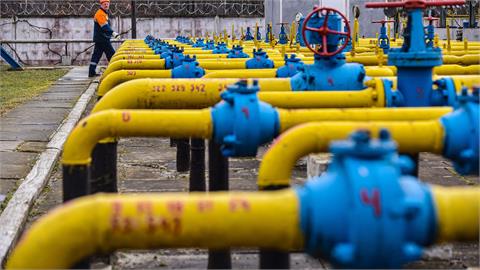The Bulgarian government has started constructing Unit 7 at the Kozloduy Nuclear Power Plant, using US technology that is unique to Europe, and with an initial government investment of €250 million, according to Prime Minister Nikolay Denkov.
Bulgaria will use the new technology of the US nuclear company Westinghouse, which hopes to enter the EU market through the Bulgarian project.
There are currently only two operating nuclear power plants using Westinghouse’s AP1000 technology in the world – one is in China, and the other is in the US, while Ukraine has expressed interest as well.
“The state company responsible for the project will receive €250 million. The company will start negotiations with the companies that have to build the 7th power unit of the power plant. The deadline for the completion of the project is 2033,” Denkov said.
Sources told Euractiv Bulgaria that this deadline for the 1150 megawatt plant may be a little optimistic and will likely be completed by 2035. While the government contribution has been made public, there is no current information on the total value of the completed unit.
The next step of the process is Minister of Energy Rumen Radev taking the necessary actions on the transparent selection of a contractor for the design, construction and commissioning of the new power unit.
Currently, the NPP in the Danube River town of Kozloduy relies on two Soviet nuclear reactors, which will use American and French nuclear fuel in the future.
At the same time, the Bulgarian government will start preparations for constructing the 8th reactor of the Kozloduy NPP using the same AP1000 technology. According to the plan, the construction activities of the two new power units should run parallel, and the second one should be completed within two to three years after the first one.
Denkov defined the government’s decision as one of the most important that the cabinet will take during its mandate.
“The total capacity of the future 7th and 8th units is 2300 MW, with which they significantly exceed the capacity of 1760 MW of the closed 1st, 2nd, 3rd and 4th units of the Kozloduy NPP”, Denkov commented.
He said the technology Bulgaria chose for these reactors is unique: “It allows in a very short time to change the power of the reactors, which is extremely important for the stable management of the energy system.”
The ability to quickly reduce and increase the power of nuclear power units is vital so that they can be used as base capacities, supplementary to the renewable sources of electricity under the conditions of the Green Deal, Euractiv Bulgaria learned.
“The construction of new facilities at the Kozloduy NPP site is appropriate given the excellent available infrastructure for radioactive waste management, physical protection, radio-ecological monitoring and emergency response. The site also has free capacity for the connection of new power and trained highly qualified personnel,” the Bulgarian government’s press service announced.
In July, after a meeting with Greek Prime Minister Kyriakos Mitsotakis, Denkov announced that Greece had confirmed its interest in investing in the construction of new reactors at the Kozloduy NPP, with the alternative option being to conclude a 20-year contract for the purchase of the produced electricity.
At the same time, Bulgarian President Rumen Radev criticised the government for the decision on the new nuclear facilities. “Apparently, the NPP will be built like the Bulgarian highways – in the dark,” he commented.
(Euractiv.com, October 26, 2023)



